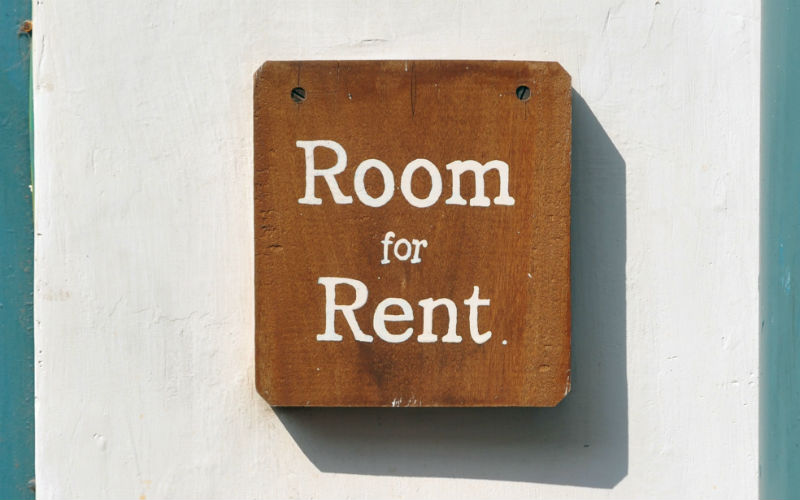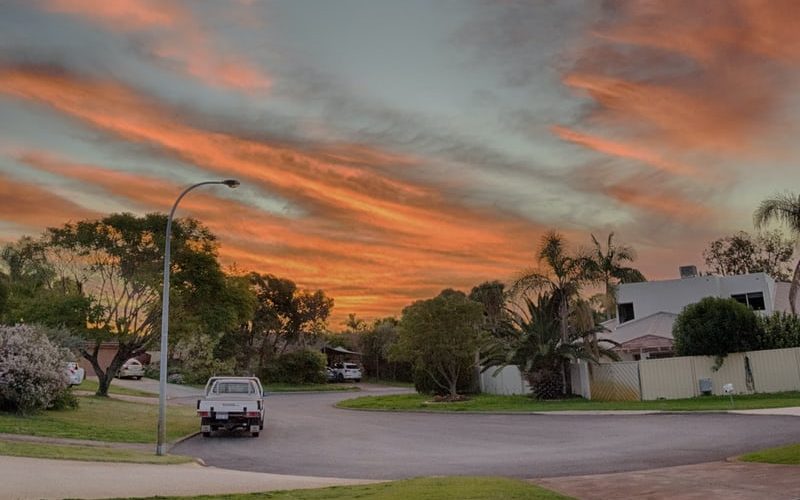There are more than 2 million property investors across the country, the vast majority of whom would have tenants living in their property. And of these 2 million+ investors, 54% of them use the services of a property manager, according to the Real Estate Institute of Australia (REIA).
A property manager can be used to make your life as a landlord easier.
What is a property manager?
A property manager - also known as a tenancy manager, or simply an agent - have the sole responsibility of managing the day-to-day obligations of a landlord. Essentially, if you have tenants in your investment property, then you can outsource your responsibilities as a landlord to a property manager (we’ll cover these responsibilities in detail below).
You can go without the use of a property manager, but doing so typically results in much more admin for you to handle yourself. Managing a rental property is often a busy and thankless job, which can be difficult to take care of if you have a full-time job and other commitments.
A good property manager will spare you the time and effort, at a fairly reasonable cost.
What does a property manager cost?
Property managers aren’t charity. You need to pay for their services as they’ll be doing quite a lot for you. There are three types of fees commonly charged by property managers:
- Management fees: the fee associated with the day-to-day management of the property, such as rent collection, liaising with tenants and body corporate, conducting reviews and inspections, organisation maintenance and so on.
- Letting fees: the fees charged for finding a new tenant. This fee covers things like advertising for a new tenant, taking and uploading high-quality photos, processing rental applications, negotiating leasing terms etc.
- Other fees: other costs can vary from agency to agency, but covers things like lease renewal fees, tribunal representation fees if problems arise with the tenants, statement fees and more.
The management fee is generally the most expensive of these three charges, generally costing between 5% to 12% of your weekly rental income. This obviously means a house with a larger rental income will come with a larger management fee, and is charged on an ongoing basis.
The letting fee is also based on your rental income but is only charged in the event a new tenant is found. This is usually one to two weeks of rental income. The ‘other fees’ category can apply at any time depending on the circumstances.
Property management fees by state
According to Which Real Estate Agent, property management costs can vary from state-to-state on average.
Here’s a breakdown of the approximate average property manager charges across the country for management fees:
|
State |
Average cost (% of rental income) |
|---|---|
|
NSW |
5-8% |
|
QLD |
9% |
|
VIC |
6% |
|
SA |
9-11% |
|
WA |
8-11% |
|
ACT |
6-8% |
|
TAS |
7.5% |
It might be tempting to get a cheaper property manager, but this could come back to bite you in the long run. Paying 1% less on your rental income for a certain property manager could save you say, $500 a year, but what is the cost of not having a good one? If a less-qualified property manager fails to find a tenant in time, you could be out a couple of thousand dollars from lost income, just as one example.
Qualified and highly-recommended property managers might charge more, but there’s a good chance they’re better at maximizing your return on investment while also keeping your tenants happy.
What does a property manager do?
There’s a huge range of tasks a property manager can perform in any given day, and they can end up being quite busy when dealing with multiple clients.
Key responsibilities of a property manager are:
- Advertising your property on rental websites and hosting inspections
- Finding and screening potential new tenants (and pets if applicable)
- Organising the collection of rent and ensuring the correct amount is being paid, on time
- Preparing and finalising entry condition reports
- Creating and ensuring the signing of the lease
- Handling all the nitty-gritty paperwork
- Managing day-to-day interactions with tenants
- Inspecting the property on a regular basis
- Responding to requests for repairs and maintenance and arranging tradespeople
- Handling tenant turnover
So yeah, there are a few things they can do for you. If you’re investing in property, ask yourself: do you have the time or the willingness to do all of these things yourself?
There’s also the possibility that an exceptional property manager will help you make more money. For example, they could keep an eye on the rental market and suggest a reasonable rental increase in-line with other similar properties. They can also do things like advise you on affordable renovations you could do to add value to the property based on tenant feedback or market expectations.
Note that property managers do not perform maintenance and repairs themselves - in certain cases like emergency repairs you’re required to bring in a licensed tradesperson to fix things. So you don’t pay them to fix broken things in the house, that’s an extra charge you’ll have to pay.
What to look for in a property manager
There are tons of active property managers in Australia, occupying a large portion of the 64,000+ property professionals working in Australia, per the Australian Bureau of Statistics census data. But some will definitely be better than others, and picking a bad one could result in lost rental income and more admin for you to do.
According to Seek, formal qualifications are recommended but not required to be a property manager, although depending on your state you might need to be a registered land agent to run a property management business. Property managers might need to be registered too: in South Australia, for example, you must hold a property manager registration, a sales representative registration with a property manager condition, or a land agent's registration.
Due to not necessarily needing formal qualifications, it’s important to do your research on property agents before committing to one. Listening to recommendations both online and from fellow property investors is a good place to start.
When considering a particular property manager for your property, the Real Estate Institute of Australia recommends asking them questions like:
- What are your processes in choosing good tenants?
- Can you explain your charges and how much will I be paying?
- How much would you market the property for, and why?
- How can you optimise my rental income and capital growth?
- What qualifications do you have? Skilled agents might have certificates in property services or university degrees in property and real estate.
- How many other properties do you manage, and how much time will you devote to mine?
- Why should I pick you over other property management services?
Ideally, you should shortlist more than one potential property manager and select the one that best answers these questions. Some companies that specialise in property management include Rental Management Australia, Metropole, Real Property Management Australia and more. You could also consult any of the many real estate agencies (which typically offer property management services) as well as smaller property management firms.
How a good property manager can help tenants too
The ideal tenant-landlord relationship should be symbiotic in nature, with tenants paying landlords in order to live in their property. A good tenant is one who never causes any issues with the property and pays rent on time, while a good landlord is one who respects the tenant’s right to live there in peace and in privacy.
One of the key roles of a property manager is to be a kind of ‘tenant liaison’ - if the tenant has any concerns or issues with the property (such as a lost key or broken pipe), they will be much happier if they know they can contact a good property manager who will promptly respond to their concerns.
A happy tenant is also much more likely to stay in that property for an extended period of time, meaning a landlord doesn’t have to pay any extra fees to locate new ones and doesn’t lose any rental income.
In addition to keeping good tenants happy, a good property manager should also be adept at dealing with bad tenants: following up on missed rent, completing inspections and issuing warnings if necessary are all part of the property management package.
If you don’t have the time to do all of this (or maybe just don’t want to) then a property manager could be a suitable option.
Pros and cons of property managers
To summarise all we’ve said above, here’s a list of the pros and cons of having a property manager.
| Pros | Cons |
|---|---|
|
|
Savings.com.au’s two cents
If you don’t mind the relatively small cost of roughly 10% of your rental income going towards a property manager then they can be a worthwhile expense. The important thing is to take the time to find a good one with experience who can adequately meet your needs as an investor.

Ready, Set, Buy!
Learn everything you need to know about buying property – from choosing the right property and home loan, to the purchasing process, tips to save money and more!
With bonus Q&A sheet and Crossword!



 Harry O'Sullivan
Harry O'Sullivan
 Denise Raward
Denise Raward













